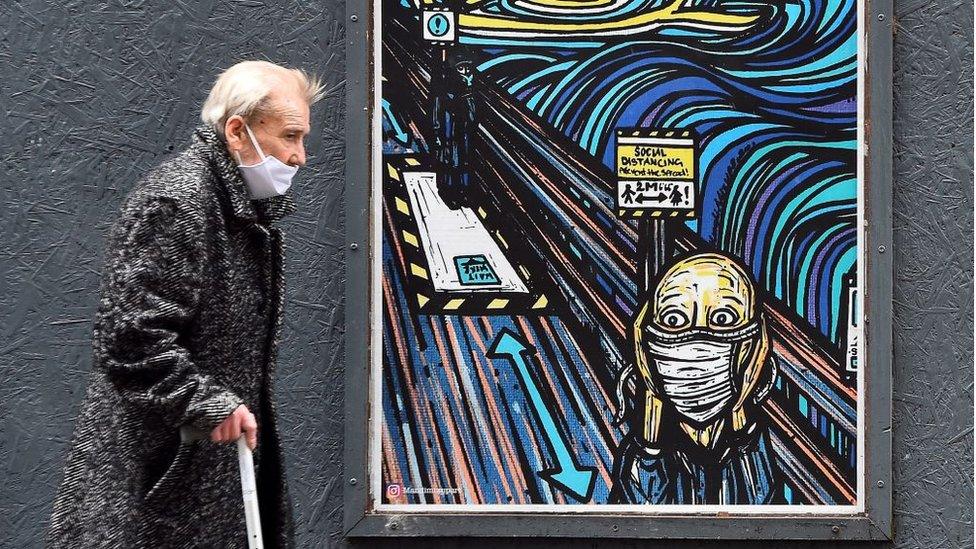Covid in Scotland: Surge may peak in next fortnight
- Published
- comments
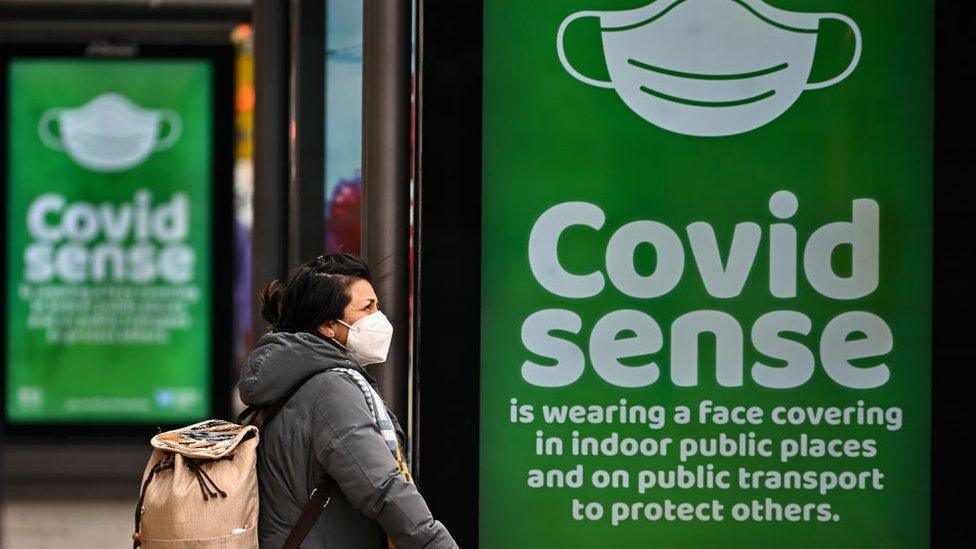
Rules on mask wearing have been extended to early April amid a Covid surge
The latest Covid surge in Scotland may peak within the next fortnight, according to a public health expert.
Christine Tait-Burkard said cases could then decline rapidly as the virus runs out of new people to infect.
She said the most vulnerable people should meanwhile consider upgrading their face masks as most face coverings offer "small" protection.
Deputy First Minister John Swinney defended the extension of rules on mask wearing as a "proportionate" response.
The last legal Covid restrictions were due to end next Monday, but Nicola Sturgeon announced on Tuesday the requirement to wear face coverings in shops and on public transport would remain until at least early April.
Mr Swinney told BBC Radio's Good Morning Scotland that the resurgence in Covid, driven by a new more transmissible sub-variant of Omicron, was a challenge particularly for hospitals where patients with the virus are at near record levels.
On Wednesday there were 1,999 patients with Covid, higher than during the Omicron surge in January this year, and not far short of the whole-pandemic record of 2,053 seen in January 2021.
The latest National Records of Scotland figures, external reveal there were 117 deaths where Covid was mentioned on the death certificate last week, an increase of six - but monthly data for February also indicates that mortality is falling.
Some have questioned whether face coverings will have any impact, but Mr Swinney said they could help "interrupt the circulation of the virus".
He agreed that there were encouraging signs that the peak of the latest surge was close, and said the number of new cases going into hospital was beginning to recede, even if the total number of patients with Covid was still rising.
Ms Tait-Burkard, an infection expert at the University of Edinburgh, said retaining the rules on masks was a "relatively easily-achieved measure" which would be a "last reminder" of the need for caution.
But she added: "The impact that the mask wearing makes without many of the other restrictions in place is small, or is smaller than it ever was before."
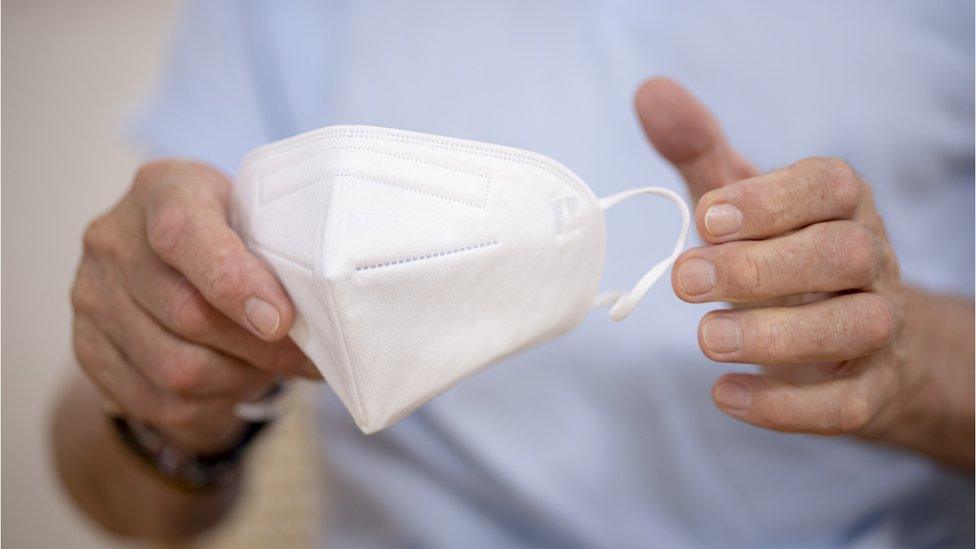
Ms Tait-Burkhard said the most vulnerable should consider using thicker FFP2 or N95 masks
She said thin surgical or fabric masks were less effective against current strains of Covid because "we need to inhale less of the virus to get infected".
"They still help reducing the virus level in public places and especially for vulnerable people that can make the difference," she told BBC Scotland.
"There should be also the advice that for vulnerable people it might be a good moment, or probably a very pertinent moment, to upgrade mask to so-called FFP2 or N95, the thicker ones that fit very closely about your face to protect yourself more than others."
Ms Tait-Burkhard said the experience of Denmark, with a similar population as Scotland, suggested the virus could start to decline rapidly once it peaks because it has run out of people to infect, coupled with high levels of vaccination.
Public health experts have often been reluctant to talk of "herd immunity" because of Covid's ability to re-infect, but she said the virus had lost much of its "pace" because of higher levels of immunity in society.
"Now for the first time during the pandemic, you are less likely to die of Covid when you get it, compared to getting the flu," she said.


Related topics
- Published15 March 2022
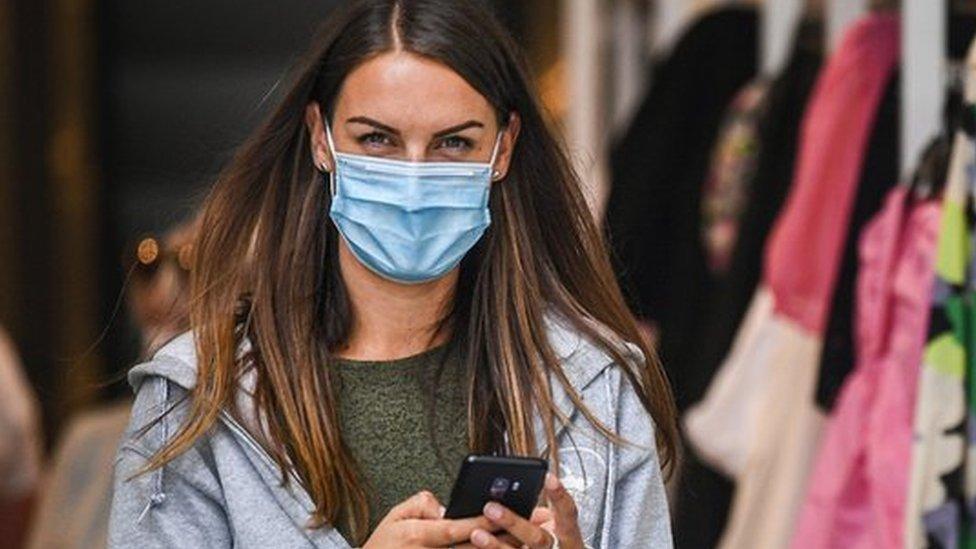
- Published14 March 2022
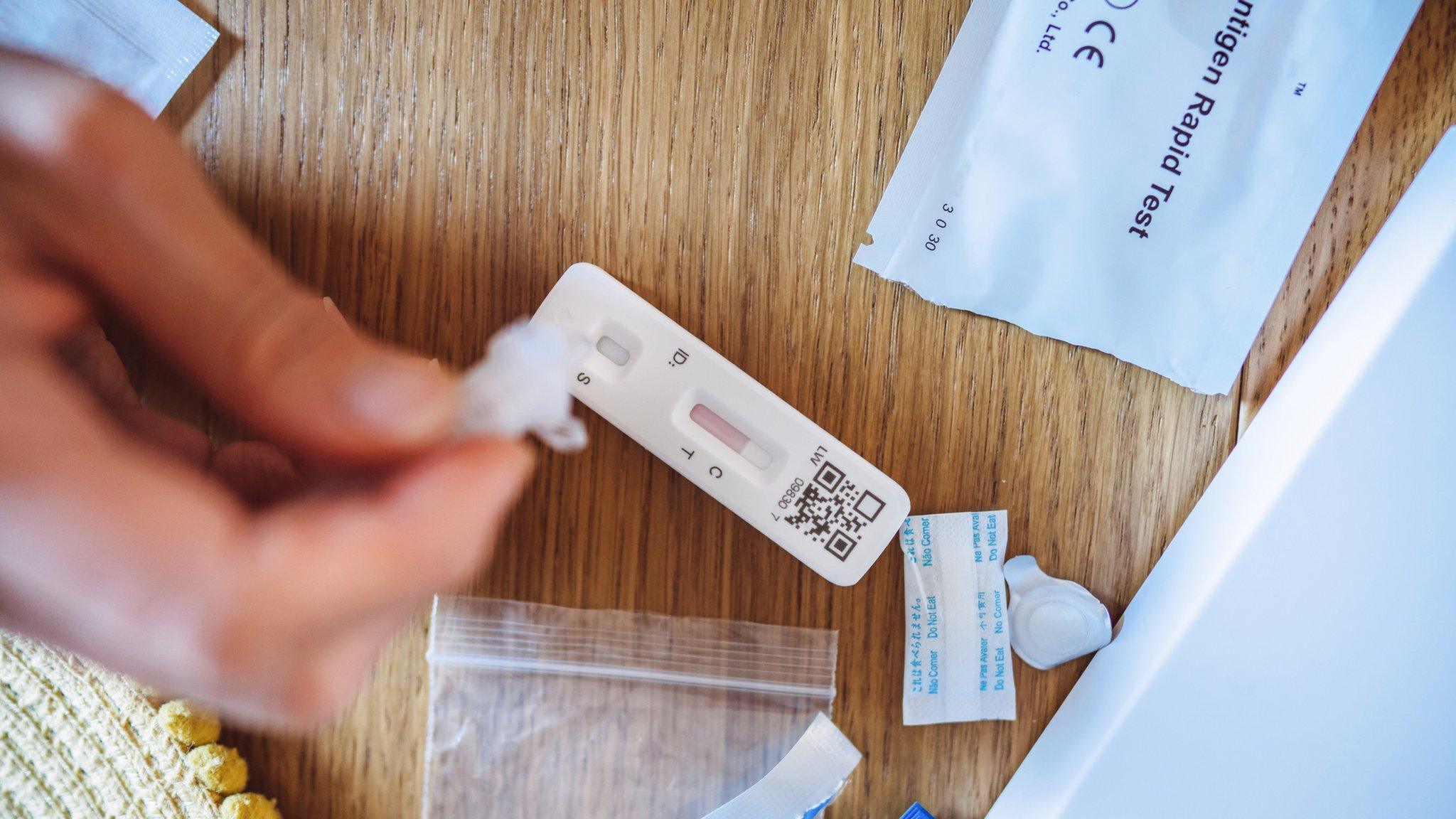
- Published15 March 2022
